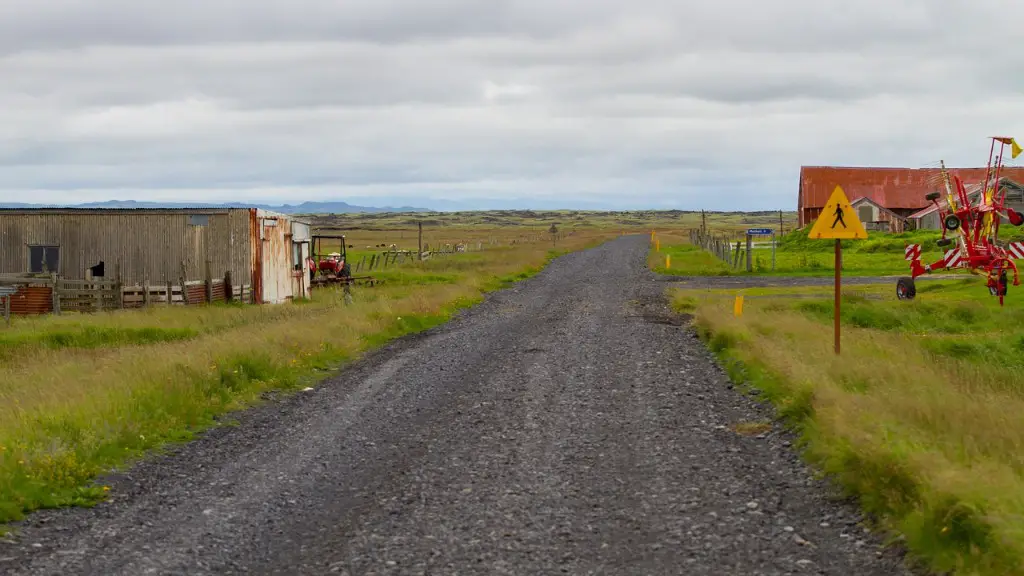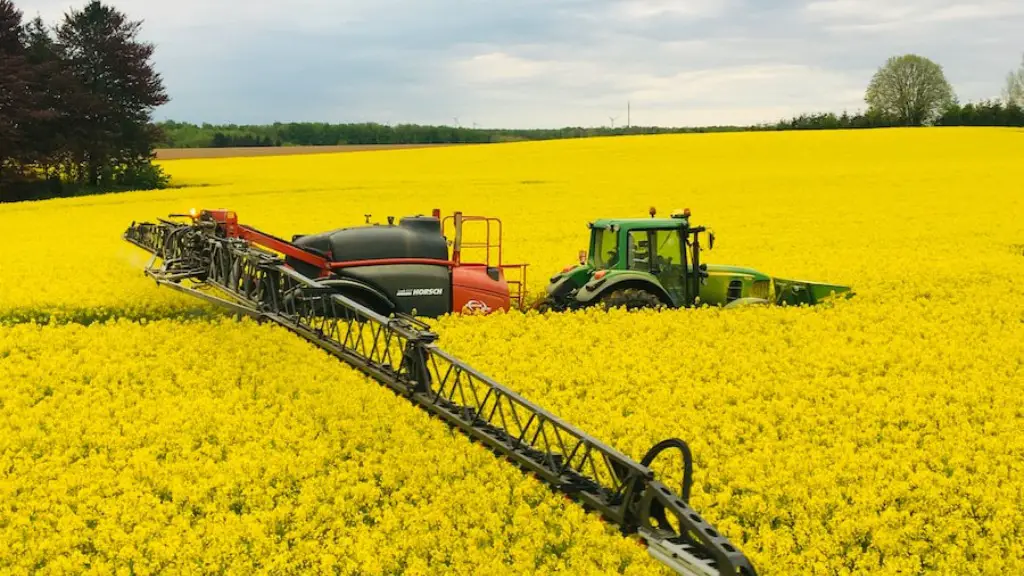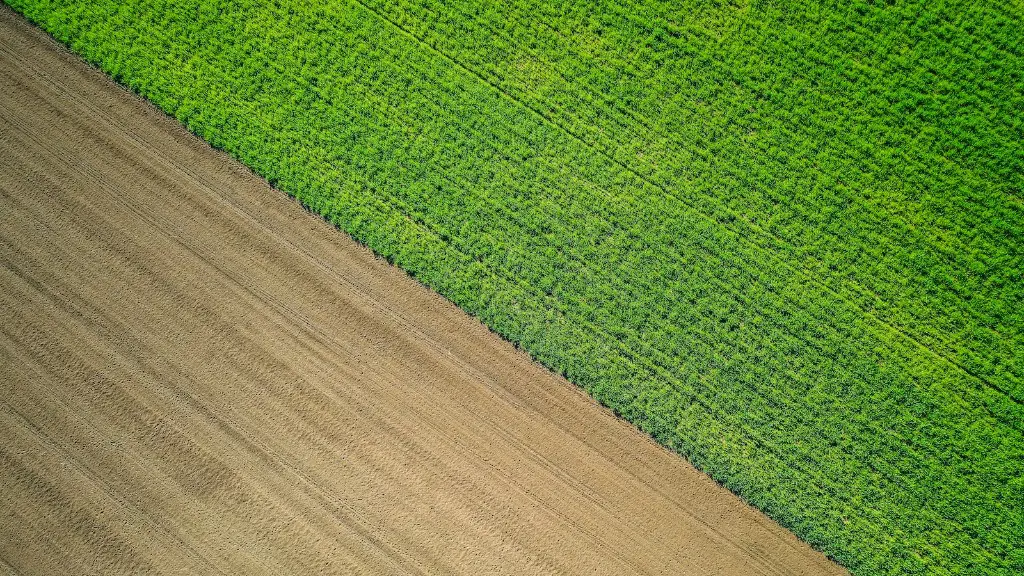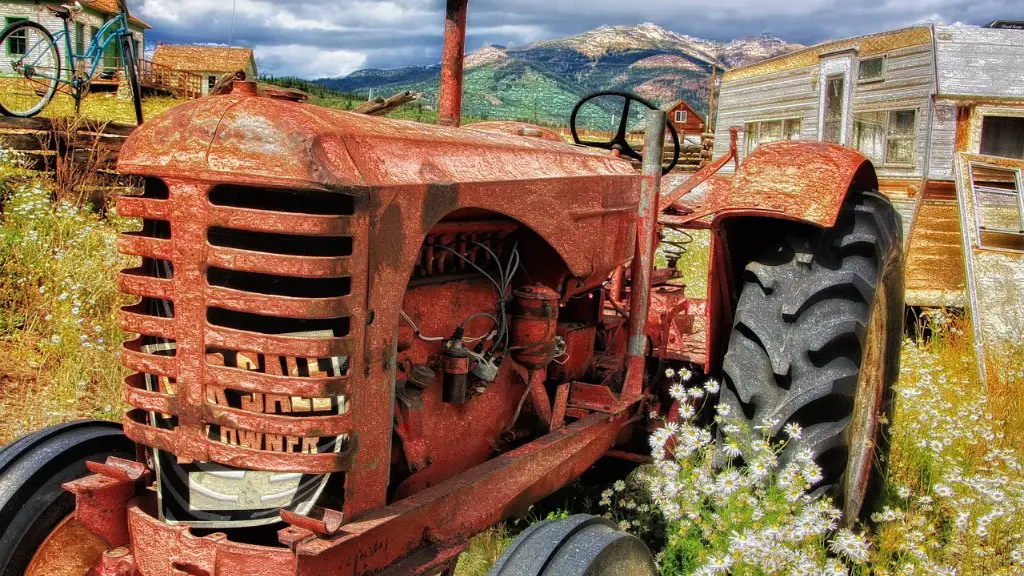Agriculture emerged during the Neolithic Revolution, which began around 10,000 BC. It is thought that early humans began domesticating plants and animals, which led to the development of agriculture. The first agricultural societies developed in the Fertile Crescent, which is a region in the Middle East that includes parts of modern-day Iraq, Iran, Syria, Lebanon, and Israel. This area was chosen for agriculture because of its ample rainfall and fertile soil. The Neolithic Revolution allowed for the growth of civilizations and the rise of cities.
The agricultural revolution is thought to have begun around 10,000 BC in the Fertile Crescent region of the Middle East. The reasons for its emergence in this location and at this time are the subject of much debate. One theory suggests that the end of the last ice age created a more hospitable climate for plant and animal life in the region. Another theory posits that early humans began domesticating plants and animals, which led to the development of agriculture.
Where did agriculture emerge from?
Agriculture is thought to have originated in a few small hubs around the world, but the first evidence of it comes from the Fertile Crescent, a region in the Near East including parts of modern-day Iraq, Syria, Lebanon, Israel and Jordan. The Fertile Crescent is thought to be where crops were first domesticated, and it’s thought that early farming methods were developed here. Agriculture quickly spread to other parts of the world, and it’s now an important part of the global food supply.
The Zagros Mountain range, which lies at the border between Iran and Iraq, was home to some of the world’s earliest farmers. Sometime around 12,000 years ago, our hunter-gatherer ancestors began trying their hand at farming. The Zagros Mountains provided a perfect location for early farmers to test out their new way of life. The mountains are rich in resources, including water, soil, and sunlight. The climate is also ideal for agriculture. The Zagros Mountains were a perfect place for our ancestors to start their new way of life.
When and where did the agricultural revolution first occur Why
The Neolithic Revolution was a time period when humans first began to practice agriculture. This change led to a domino effect of other innovations, including the domestication of animals and the development of new tools and technologies. The Neolithic Revolution started around 10,000 BC in the Fertile Crescent, a region of the Middle East where humans first began to farm. However, this change quickly spread to other parts of the world as well.
The Agricultural Revolution was a period of time in which humans began to domesticate plants and animals for food. This period marked a major change in human history, as farming allowed for permanent settlements and a more reliable food supply. The Agricultural Revolution first began in the Middle East around 10,000 BC.
When did agriculture begin —?
Agriculture has been an important part of human society for millennia. It was first developed at least 10,000 years ago, and has since undergone significant changes and developments. Agriculture has independently developed in various parts of the world, including northern and southern China, Africa’s Sahel region, New Guinea, and several areas in the Americas. Agriculture has played a vital role in the growth and development of human civilization, and will continue to do so in the future.
The Agricultural Revolution was a profound change in the relationship between fully modern humans and the environment. People evolved into their current form some 200,000 years ago, yet they did not begin to engage in agriculture until about 15,000-10,000 years before the present. This change allowed for the domestication of plants and animals, which led to the development of civilizations. Agriculture allowed for the growth of cities and the rise of civilizations. It also had a profound impact on the environment, as it led to the clearing of forests and the alteration of the landscape.
Why did agriculture begin?
Agriculture allowed for the domestication of plants and animals, which led to the development of communities approximately 10,000 years ago. Domesticity allowed for families and larger groups to build communities and transition from a nomadic hunter-gatherer lifestyle dependent on foraging and hunting for survival. Agriculture allowed for the production of food, which allowed for the development of civilizations.
In lower Central America and northwestern South America, the early history of plant domestication is known in large part from microfossil evidence. Agriculture led to landscape transformations in the Americas, the scale of which varied across time and place.
What is the history of agriculture
The history of agriculture is the story of humankind’s development and cultivation of processes for producing food, feed, fiber, fuel, and other goods by the systematic raising of plants and animals Prior to the development of plant cultivation, human beings were hunters and gatherers. The transition to agriculture began about 10,000 years ago, and since then, agriculture has been an important part of human society. Agriculture allowed for the domestication of plants and animals, which led to the development of civilizations. Today, agriculture continues to be an important part of the world economy, providing food, fiber, and other products for people around the globe.
The Agricultural Revolution was a pivotal moment in British history, marked by a significant increase in agricultural production. This period was characterized by new agricultural practices, such as crop rotation and selective breeding, which led to greater yields and a more efficient use of arable land. The Agricultural Revolution had far-reaching consequences for British society, economy, and culture, paving the way for the Industrial Revolution and the modern world as we know it.
When did the Agricultural Revolution start and end?
The Agricultural Revolution was a period of unprecedented increase in agricultural productivity in Great Britain (also known as the Second Agricultural Revolution). It began in the 17th century and continued into the 19th century. The Scottish Agricultural Revolution was a period of transformation into a modern and productive system. It began in the 17th century and continued into the 19th century.
The Egyptians were among the first people to practice agriculture on a large scale. This was made possible with the development of basin irrigation. Basin irrigation is a type of irrigation in which water is collected in a basin, or area of land, before being distributed to the crops. This type of irrigation is very efficient and allows for a large amount of land to be irrigated with a small amount of water. Basin irrigation was first developed in the pre-dynastic period, between around 10,000 BC and 4000 BC.
Why did agriculture arise when it did quizlet
There are a few reasons why agriculture arose when it did. First, people learned how to domesticate plants and animals. They developed new ways to gather, process, and store food. Second, the climate became more favorable. Agriculture allowed people to settle in one place and create civilizations.
Native Americans cultivated a variety of crops, including corn, beans, squash, and sunflowers. They also hunted game and gathered wild fruits and vegetables.
What are 3 reasons why agriculture is important?
1. It’s the main source of raw materials: Agriculture is the main source of raw materials for industries such as textile, pharmaceutical, and dairy.
2. It’s important to international trade: Agriculture is a vital sector of international trade, with countries exporting and importing agricultural products.
3. It plays a big role in a nation’s revenue: Agriculture is a major contributor to a country’s GDP and tax revenue.
4. It provides employment: Agriculture provides employment for millions of people around the world, either directly or indirectly.
5. It’s crucial to a country’s development: Agriculture is essential for a country’s development, as it is a key sector in the economy.
6. It can help heal the environment: Agriculture can help to heal the environment, by practicing sustainable methods of farming.
7. It goes hand-in-hand with war: Agriculture is often a key sector in times of war, as countries need to be able to feed their populations.
8. It’s a way of life for many: For many people, agriculture is a way of life, and has been for centuries.
New economies were successful in some areas because they allowed for the development of cities and civilizations. The earliest civilizations based on intensive agriculture arose near the Tigris and Euphrates Rivers in Mesopotamia (now Iraq and Iran) and along the Nile River in Kemet (ancient Egypt). These civilizations were successful because they had access to resources that allowed them to develop irrigation systems, grow crops, and trade with other cultures.
Final Words
There are several reasons why agriculture emerged when and where it did. One reason is that early humans began to domesticate plants and animals, which made it possible to cultivate crops and raise livestock. Another reason is that the climate in certain parts of the world was conducive to agriculture, with enough rainfall and sunlight to support plant growth. Additionally, the availability of suitable land for cultivation played a role in the development of agriculture. In many cases, early farmers had to clear forests and other land in order to create fields for planting.
There are several reasons for why agriculture emerged when and where it did. One reason is that the climate was changing and becoming drier, which made it difficult to sustain a hunting and gathering lifestyle. Another reason is that there were certain plants and animals that were suited for domestication, and they were found in the same geographic region. Additionally, the people in that region had the necessary skills for agriculture, such as irrigation and cultivation. All of these factors came together to create the perfect conditions for agriculture to emerge.





